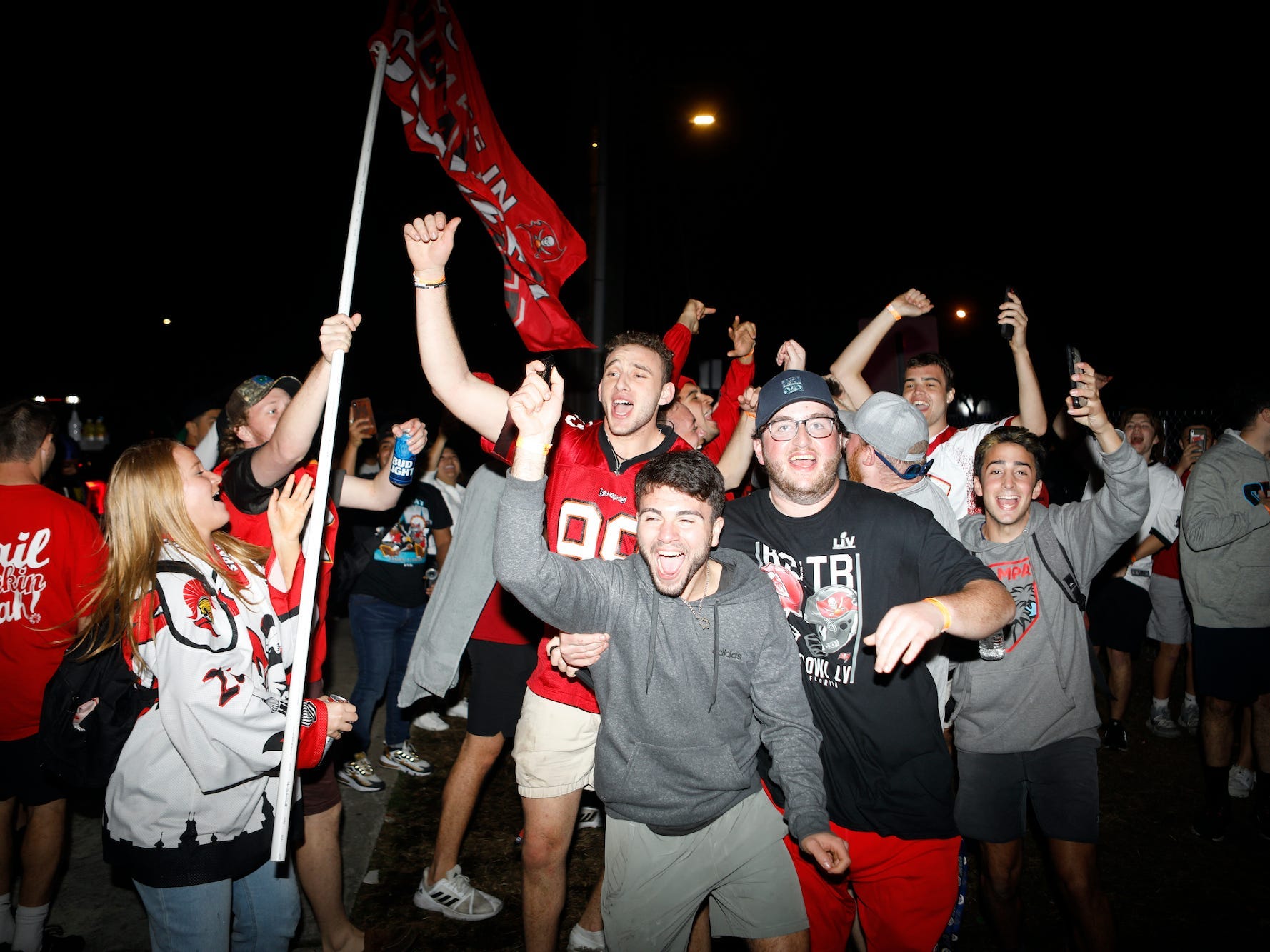
Octavio Jones/Getty Images
- Florida public health expert Cindy Prins is “very concerned” about the spread of highly contagious variant found in the UK following Sunday’s Super Bowl.
- Many Tampa Bay Buccaneer fans in Florida didn’t wear masks and disregarded social distancing recommendations after a Super Bowl win against Kansas City Chiefs.
- Florida has the highest number of reported B.1.1.7 cases in the US, with 201 people infected according to the Centers for Disease Control and Prevention.
- Visit the Business section of Insider for more stories.
The fast-spreading coronavirus variant first found in the UK could get a foothold in Florida following Sunday’s Super Bowl in Tampa Bay, a public health expert has warned.
Florida already has more reported cases of the variant, B. 1.1.7, than any other state, and Cindy Prins, clinical professor of epidemiology at the University of Florida told Insider it was a “major concern” that the event had caused the variant to spread further. She cited a combination of the more transmissible variant, people gathering together, and a fairly high number of existing COVID-19 cases.
Fans of the Tampa Bay Buccaneers crowded into nearby bars and restaurants before, during, and after the Superbowl game against Kansas City Chiefs Sunday,the Tampa Bay Times reported. Many did not wear masks, and disregarded social distancing despite attempts from the organizers to minimize the risks.
“We might see an increase in cases in the next week related to the event, and it will be about two to three weeks before we get increased hospitalizations,” Prins said.
Florida has the highest reported cases of emerging variants
In Florida, there are at least 201 cases of COVID-19 caused by the coronavirus variant first identified in the UK. It’s the highest number in any state in the US, according to the Centers for Disease Control and Prevention.
It's hard to know exactly how many COVID-19 cases are caused by emerging variants because sequencing is not widespread. More than 27,000 people have died from the virus in the state, according to Johns Hopkins University.
While vaccinations are rolling out in the US, many younger Americans aren't vaccinated and run the risk of spreading it to older family members or friends.
"My concern is that as you have more spread within that younger population, it will move into our older population, to those who aren't vaccinated yet and are at higher risk of hospitalization and death," Prins said.
The B.1.1.7 variant is estimated to be 30% to 50% more contagious than other forms of the virus, according to Public Health England, and is fast-spreading across the US, with at least 690 cases recorded in 33 states, according to the CDC data. The CDC said in January that it would become the most common coronavirus strain in the US by March.
As people head home from the Super Bowl, they run the risk of bringing the new variant home with them.
"That's a worry as well," Prins said. "I don't know how many people traveled in for this, but if they get [B.1.1.7], they're bringing home with them."
People need to be 'very cautious'
Prins said that people need to be "very cautious" if they attended. They should be vigilant when it comes to possible symptoms, and isolate immediately if they become unwell, along with any contacts, she said.
Prins also recommended that they get tested towards the middle or end of this week to stop people with no symptoms passing on the virus.
"We need to go back to that good old fashion COVID-19 prevention that we know can work," she said.
